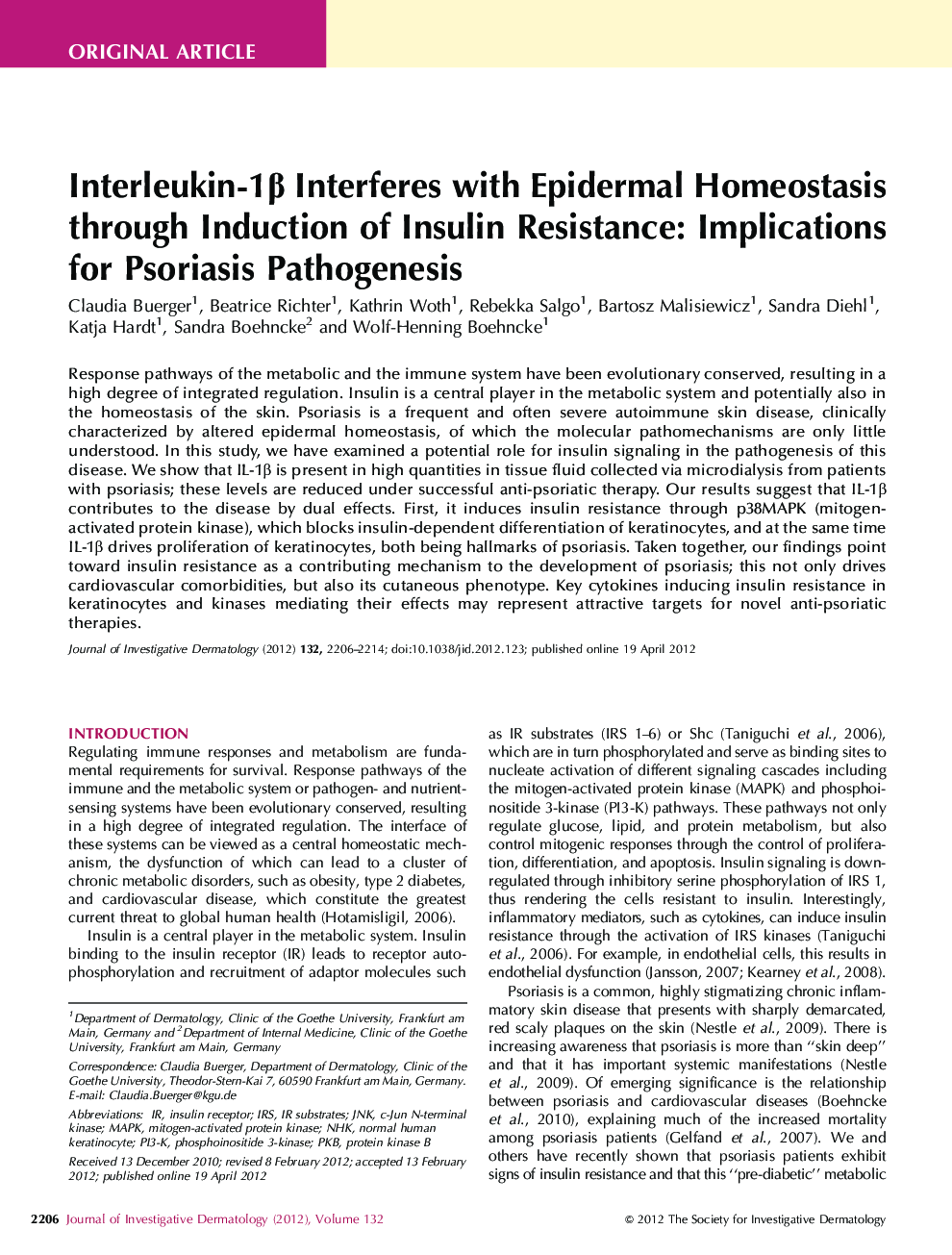| Article ID | Journal | Published Year | Pages | File Type |
|---|---|---|---|---|
| 6077546 | Journal of Investigative Dermatology | 2012 | 9 Pages |
Abstract
Response pathways of the metabolic and the immune system have been evolutionary conserved, resulting in a high degree of integrated regulation. Insulin is a central player in the metabolic system and potentially also in the homeostasis of the skin. Psoriasis is a frequent and often severe autoimmune skin disease, clinically characterized by altered epidermal homeostasis, of which the molecular pathomechanisms are only little understood. In this study, we have examined a potential role for insulin signaling in the pathogenesis of this disease. We show that IL-1β is present in high quantities in tissue fluid collected via microdialysis from patients with psoriasis; these levels are reduced under successful anti-psoriatic therapy. Our results suggest that IL-1β contributes to the disease by dual effects. First, it induces insulin resistance through p38MAPK (mitogen-activated protein kinase), which blocks insulin-dependent differentiation of keratinocytes, and at the same time IL-1β drives proliferation of keratinocytes, both being hallmarks of psoriasis. Taken together, our findings point toward insulin resistance as a contributing mechanism to the development of psoriasis; this not only drives cardiovascular comorbidities, but also its cutaneous phenotype. Key cytokines inducing insulin resistance in keratinocytes and kinases mediating their effects may represent attractive targets for novel anti-psoriatic therapies.
Related Topics
Health Sciences
Medicine and Dentistry
Dermatology
Authors
Claudia Buerger, Beatrice Richter, Kathrin Woth, Rebekka Salgo, Bartosz Malisiewicz, Sandra Diehl, Katja Hardt, Sandra Boehncke, Wolf-Henning Boehncke,
